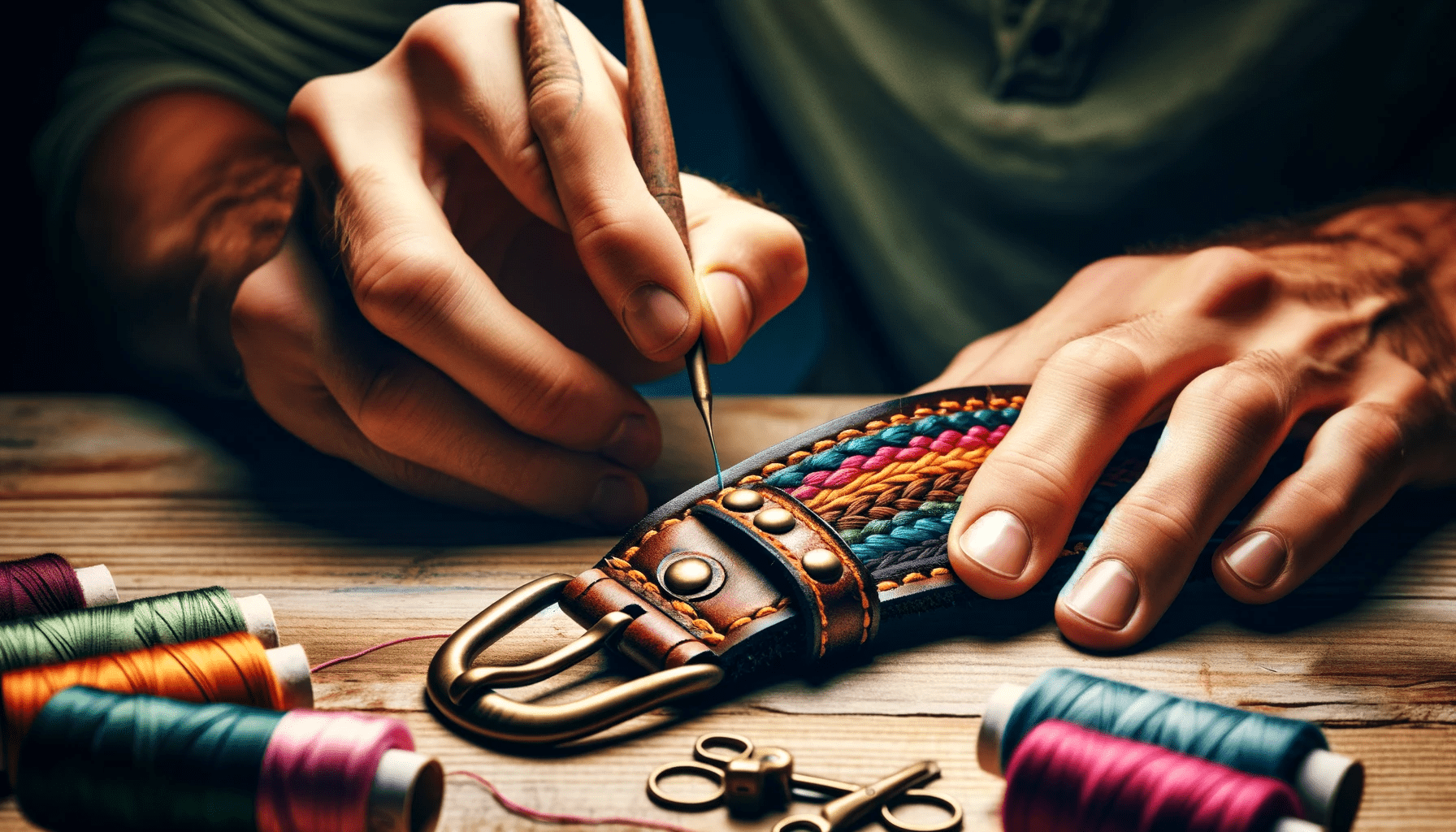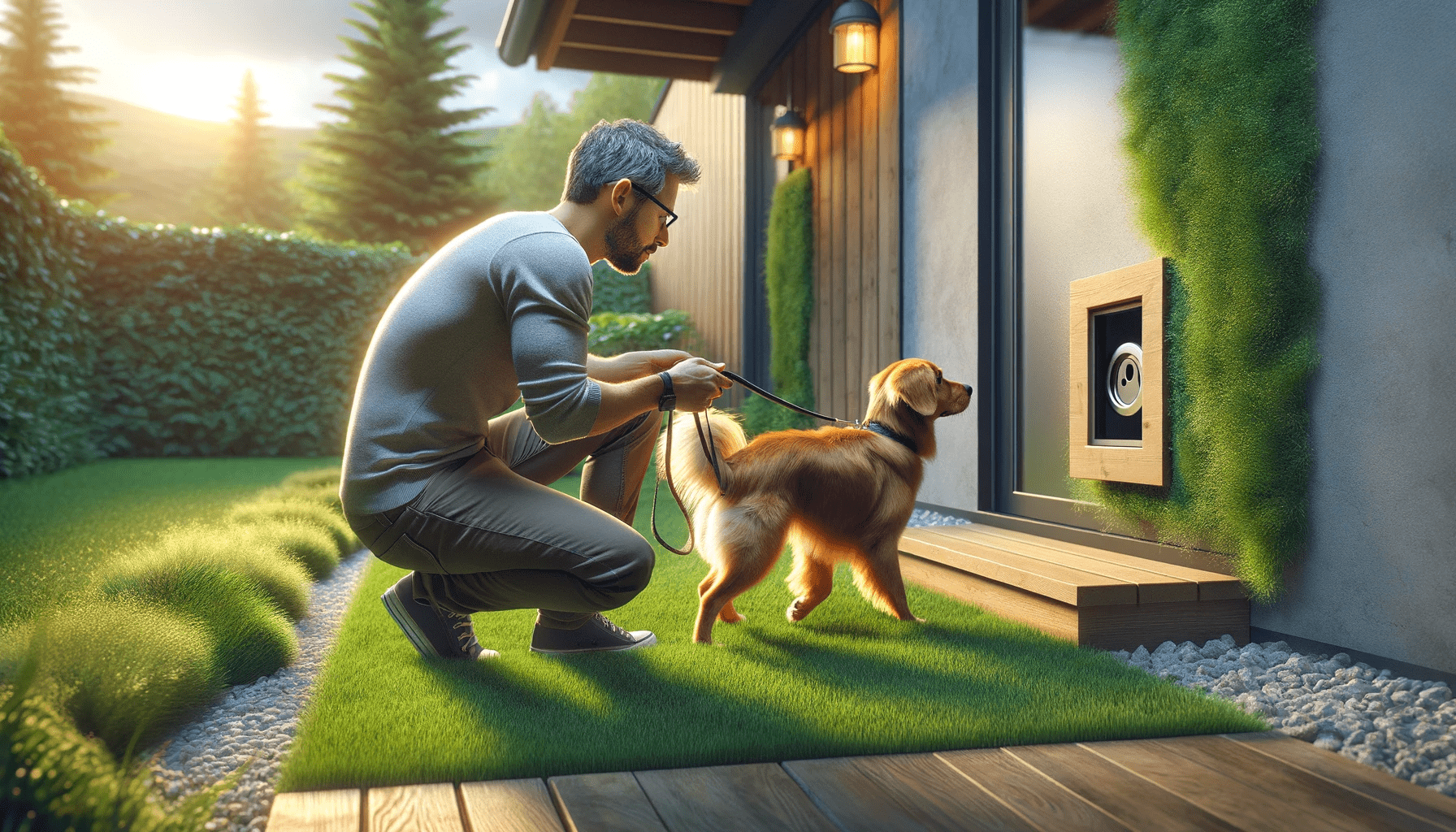Are you struggling to socialize your rescue dog?
Essential Socialization Training for Rescue Dogs: Take the Quiz is here to help!
This article provides expert advice and practical tips to help you navigate the challenges of socializing your furry friend.
Learn about the importance of socialization training, common challenges you may encounter, and steps to get started.
With this knowledge, you'll be equipped to give your rescue dog the socialization skills they need to thrive.
Take the quiz now to assess your understanding!
Key Takeaways
- Socialization training is crucial for rescue dogs to develop necessary skills.
- Early socialization lays the foundation for well-adjusted and confident dogs.
- Fear-based aggression triggers include loud noises, crowded environments, unfamiliar people or animals, and physical touch.
- Trust-building exercises, like the 'Touch' and 'Follow me' exercises, help strengthen the bond between owner and rescue dog.
Importance of Socialization Training
Socialization training is crucial for ensuring that rescue dogs develop the necessary skills to interact positively with people and other animals. The importance of early socialization can't be overstated, as it lays the foundation for a well-adjusted and confident dog. By exposing rescue dogs to various stimuli and experiences at a young age, they learn how to navigate different environments and situations with ease. This early socialization helps them develop positive associations with people, other animals, and new environments, reducing the likelihood of fear or aggression later in life.
The benefits of socializing rescue dogs are numerous. Firstly, it helps them build trust and confidence, which is essential for their overall well-being. Socialized dogs are more likely to be adopted quickly and successfully integrate into their new homes. Additionally, socialization training enhances their ability to communicate effectively, improving their chances of forming positive relationships with humans and other animals. It also helps prevent behavioral issues, such as separation anxiety or excessive barking, by teaching them appropriate ways to cope with stress and boredom.
Common Challenges in Socializing Rescue Dogs
When socializing rescue dogs, you may encounter common challenges such as fear-based aggression triggers, trust-building exercises, and overcoming traumatic experiences.
These challenges can make the socialization process more complex and require specific approaches to ensure the dog's successful integration into their new environment.
Understanding and addressing these points is crucial in helping rescue dogs overcome their past experiences and develop positive social skills.
Fear-Based Aggression Triggers
If you're working with a rescue dog, understanding the fear-based aggression triggers can be crucial for successful socialization. Fear-based aggression is a common challenge faced when socializing rescue dogs, but with proper management and desensitization techniques, it can be overcome.
Here are some key triggers to be aware of:
- Loud noises: Sudden and loud sounds can startle a rescue dog, triggering fear-based aggression. It's important to gradually expose them to different noises and provide positive reinforcement to help them associate these sounds with positive experiences.
- Crowded environments: Rescue dogs may feel overwhelmed in crowded places, leading to aggression. Gradually introducing them to new environments and giving them time to adjust can help alleviate their fear.
- Unfamiliar people or animals: Meeting new individuals or animals can be challenging for rescue dogs, as they may associate unfamiliarity with danger. Slow introductions and positive reinforcement can help them build trust and reduce their fear.
- Physical touch: Some rescue dogs may have had negative experiences with physical touch, leading to fear-based aggression. It's crucial to respect their boundaries and gradually introduce touch to help them feel comfortable and safe.
Understanding and managing these triggers is essential for successful socialization of rescue dogs. By using desensitization techniques and providing a safe and positive environment, fear-based aggression can be effectively addressed, allowing rescue dogs to become well-adjusted and happy members of their new families.
Trust-Building Exercises
To build trust with your rescue dog, incorporate trust-building exercises that address common challenges in socializing rescue dogs.
Trust building activities are essential in helping your dog overcome their fears and anxieties, and building confidence in their ability to interact with others.
One effective exercise is the 'touch' exercise, where you teach your dog to touch your hand with their nose. This helps establish a positive association with touch and builds trust between you and your dog.
Another activity is the 'follow me' exercise, where you encourage your dog to follow you around the house or in a controlled outdoor environment. This exercise helps your dog feel more secure and builds their trust in your leadership.
Additionally, engaging in regular play sessions and using positive reinforcement techniques can further strengthen the bond of trust between you and your rescue dog.
Overcoming Traumatic Experiences
As you continue to work on building trust with your rescue dog through trust-building exercises, it's important to address the common challenges associated with overcoming traumatic experiences in socializing rescue dogs.
Here are some key strategies to help your rescue dog overcome fear and build confidence:
- Gradual Exposure: Introduce your dog to new environments, people, and animals gradually, starting with low-stress situations and gradually increasing the difficulty level.
- Positive Reinforcement: Use treats, praise, and rewards to create positive associations with new experiences, helping your dog overcome fear and gain confidence.
- Patience and Consistency: Remember that overcoming traumatic experiences takes time, so be patient and consistent in your training efforts.
- Seek Professional Help: If you're struggling to help your rescue dog overcome fear and build confidence, don't hesitate to seek assistance from a professional dog trainer or behaviorist.
Steps to Start Socialization Training
Start by introducing your rescue dog to new people, places, and situations gradually and consistently. This is a crucial step in socialization training, as it helps your dog become familiar with different environments and build positive associations with new experiences.
Here are some steps and techniques to help you start socialization training with your rescue dog.
- Set realistic goals: Understand that socialization is a process that takes time and patience. Start with small, manageable steps and gradually increase the level of difficulty.
- Positive reinforcement: Use treats, praise, and rewards to reinforce good behavior during socialization sessions. This will help your dog associate new experiences with positive outcomes.
- Controlled introductions: Begin by introducing your dog to familiar people in a calm and controlled environment. Gradually expose them to strangers, making sure to monitor their reactions and provide positive reinforcement.
- Exposure to different environments: Take your dog to various locations such as parks, busy streets, or pet-friendly stores. This will help them become comfortable in different settings and expose them to different sights, sounds, and smells.
- Gradual exposure to stimuli: Introduce your dog to different stimuli such as bicycles, children, or loud noises in a controlled manner. Start at a distance and gradually decrease the distance as your dog becomes more comfortable.
Remember to always prioritize your dog's comfort and well-being during socialization training. Patience, consistency, and positive reinforcement are key to helping your rescue dog become more confident and well-adjusted in different social situations.
Socialization Training Tips for Fearful Dogs
When it comes to socialization training for fearful dogs, there are a few key points to keep in mind.
First, overcoming fear through exposure is crucial, but it should be done gradually and at the dog's own pace.
Positive reinforcement techniques, such as rewarding calm behavior, can also help build confidence.
Lastly, seeking professional guidance and support can provide valuable insights and strategies for successfully socializing a fearful dog.
Overcoming Fear Through Exposure
To help your fearful dog overcome fear through exposure, begin by gradually introducing them to new people, places, and experiences. Exposure therapy and desensitization techniques can be effective in helping your dog build confidence and reduce fear. Here are some tips to help you in the process:
- Start with small steps: Begin by exposing your dog to low-stress situations and gradually increase the level of difficulty.
- Create positive associations: Use treats and rewards to reinforce positive experiences during exposure.
- Stay calm and patient: Your dog will pick up on your emotions, so it's important to remain calm and patient throughout the process.
- Seek professional help if needed: If your dog's fear is severe or if you're unsure about how to proceed, consult with a professional dog trainer or behaviorist.
Positive Reinforcement Techniques
Gradually introducing fearful rescue dogs to positive reinforcement techniques can help them overcome fear and improve their socialization skills. Positive reinforcement techniques involve reward-based training, which focuses on rewarding desired behaviors rather than punishing unwanted behaviors. This approach creates a positive and enjoyable learning experience for the dog, making them more receptive to training and building their confidence.
When using positive reinforcement, it's important to use rewards that are highly motivating for the dog, such as treats, praise, or play. By consistently rewarding the dog for exhibiting desired behaviors, they'll learn to associate those behaviors with positive outcomes, increasing the likelihood of them repeating those behaviors in the future.
Positive reinforcement techniques aren't only effective but also humane, creating a strong bond between the dog and their trainer while helping the dog overcome their fears and become more socially confident.
Professional Guidance and Support
For effective socialization training tips and professional guidance to support your fearful rescue dog, seek the assistance of an experienced trainer or behaviorist. They can provide the expertise and knowledge needed to help your dog overcome their fears and anxieties. Here are some important ways in which professional guidance and support can benefit you and your dog:
- Personalized Training Plan: A professional will create a customized training plan tailored to your dog's specific needs, taking into account their temperament and history.
- Behavior Modification Techniques: Trainers and behaviorists are skilled in using effective techniques to modify your dog's fearful behavior and help them become more confident and social.
- Desensitization and Counterconditioning: Professionals can guide you in desensitizing your dog to fearful stimuli and pairing these situations with positive experiences to change their emotional response.
- Support and Resources: A professional can provide ongoing support, advice, and resources to ensure that you have the tools and knowledge to continue your dog's socialization training effectively.
Socializing Rescue Dogs With Other Animals
When introducing rescue dogs to other animals, it's important for you to start with a controlled environment. Socializing rescue dogs with other animals can be a challenging process, but with the right approach, it can be a rewarding experience for both your dog and the other animals involved. Start by introducing your rescue dog to one animal at a time in a neutral space, such as a park or a backyard. Always supervise the interactions closely and be prepared to intervene if necessary.
It is crucial to monitor the body language of both the rescue dog and the other animal. Look for signs of discomfort or aggression, such as stiff body posture, raised hackles, or growling. If any signs of tension or aggression arise, separate the animals and try again later. Gradually increase the duration and frequency of the interactions as both animals become more comfortable with each other.
It is also important to consider the temperament and history of the rescue dog and the other animals. Some rescue dogs may have had negative experiences with certain types of animals, such as cats or small animals, and may require extra caution and training when socializing with them. Consulting with a professional dog trainer or behaviorist can provide valuable guidance and support in this process.
Socializing rescue dogs with other animals requires patience, consistency, and positive reinforcement. With time and effort, your rescue dog can learn to coexist peacefully with other animals, creating a harmonious and happy household.
Evaluating Progress in Socialization Training
Assessing the development of your rescue dog's socialization skills can be done by observing their interactions with other animals. Measuring the success of your dog's socialization training is crucial to ensure they're making progress and becoming more comfortable in various social situations.
Here are some key indicators to help you recognize improvement in your dog's socialization training:
- Body language: Pay close attention to your dog's body language during interactions. Signs of improvement may include relaxed body posture, wagging tail, and calm facial expressions.
- Play behavior: Observe how your dog interacts with other animals during playtime. If they engage in appropriate play behaviors such as taking turns, sharing toys, and responding well to cues from other animals, this indicates progress.
- Reactivity: Evaluate your dog's reactions to other animals. Gradual reduction in fear, aggression, or excessive excitement is a positive sign that they're becoming more comfortable and better socialized.
- General behavior: Take note of your dog's overall behavior in social settings. Improved obedience, responsiveness to commands, and ability to focus on you amidst distractions demonstrate progress in their socialization training.
By carefully observing these aspects, you can measure the success of your rescue dog's socialization training and identify areas where further improvement may be needed.
Frequently Asked Questions
Can Rescue Dogs Be Successfully Socialized Even if They Have Had a Traumatic Past?
Yes, traumatized rescue dogs can overcome their past and be successfully socialized. Patience is key in helping them adjust. With proper training and support, they can learn to trust and interact with others.
What Are Some Signs That Indicate a Rescue Dog Is Not Ready for Socialization?
If your rescue dog displays signs of fear or aggression, it's important to recognize that they may not be ready for socialization. Gradual introduction to new situations can help them feel more comfortable.
How Long Does It Typically Take for a Rescue Dog to Become Comfortable in Social Situations?
It typically takes a rescue dog a variable amount of time to become comfortable in social situations. By using effective socialization training techniques for rescue dogs, you can help them adjust and thrive in their new environment.
Are There Any Specific Breeds or Types of Rescue Dogs That May Require More Intensive Socialization Training?
Some specific breeds or types of rescue dogs may require more intensive socialization training. It is important to understand each dog's individual needs and provide the necessary training to help them become comfortable in social situations.
Can Socialization Training Help Prevent Behavioral Issues in Rescue Dogs?
Socialization training is essential for rescue dogs to prevent behavioral issues. It helps them adjust to their new environment, build confidence, and learn proper social skills. Don't underestimate the importance of socialization training for your rescue dog's well-being.
Conclusion
In conclusion, socialization training is crucial for rescue dogs to help them overcome their fears and become well-adjusted members of society.
By following the steps and tips provided, owners can effectively socialize their dogs and help them build positive relationships with other animals and people.
It's important to evaluate and track progress throughout the training process to ensure that the dog is making strides towards becoming a confident and sociable companion.






